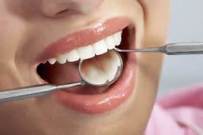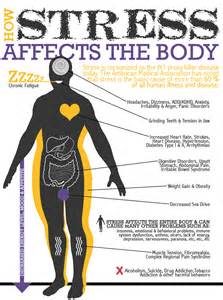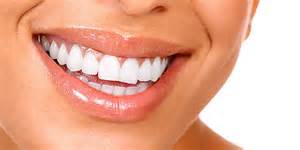A Coral Springs Dentist May Notice a Disease Before You Do.
Discuss with Your Coral Springs Dentist Illnesses You Have.
 We know of common oral issues that can lead to diseases such as plaque and gingivitis, but did you know that there is a link to oral diseases that have really nothing to do with your mouth? If you have type 2 diabetes, acid reflux, an autoimmune disease, bone mineral density is low, an eating disorder, celiac disease, or if you are experiencing major stress, your Coral Springs dentist may be able to detect these problems on your next exam. So how would these diseases show in your mouth? Let’s review the signs and symptoms
We know of common oral issues that can lead to diseases such as plaque and gingivitis, but did you know that there is a link to oral diseases that have really nothing to do with your mouth? If you have type 2 diabetes, acid reflux, an autoimmune disease, bone mineral density is low, an eating disorder, celiac disease, or if you are experiencing major stress, your Coral Springs dentist may be able to detect these problems on your next exam. So how would these diseases show in your mouth? Let’s review the signs and symptoms
A Coral Springs Dentist May Notice a Disease Before You Do.
When you have type 2 diabetes, you are much more prone to develop gingivitis, gum disease, and periodontitis because this disease will affect the way your mouth fights off bacteria. You are also likely to develop a dry mouth which can cause mouth ulcers and soreness. Diabetes also increases your chance of developing thrush which is a type of fungal infection in the mouth. Diabetes is known to make periodontal disease worse and when you have periodontal disease, your blood sugar may be harder to control.
 Acid reflux is mainly related to heartburn and indigestion, so what does it have to do with your mouth? GERD which is gastroesophageal acid reflux disease causes the acids in your stomach to back up into your esophagus and travel into your mouth. Those with GERD can develop tooth erosion and periodontal problems. Your Coral Springs dentist may notice that the enamel on your molars and backside of your teeth, this is an indication of how GERD can affect your oral health. The loss of enamel will also increase your risk of developing tooth decay.
Acid reflux is mainly related to heartburn and indigestion, so what does it have to do with your mouth? GERD which is gastroesophageal acid reflux disease causes the acids in your stomach to back up into your esophagus and travel into your mouth. Those with GERD can develop tooth erosion and periodontal problems. Your Coral Springs dentist may notice that the enamel on your molars and backside of your teeth, this is an indication of how GERD can affect your oral health. The loss of enamel will also increase your risk of developing tooth decay.
If you are a woman over the age of 40, you may have or may know someone with Sjogren’s disease. This disease attacks the glands that make tears and saliva. Sjogren’s is an autoimmune disease that can cause infection to the eyes, breathing passages, and mouth. If you have an extremely dry mouth, difficulty swallowing, dental decay, cavities, gum disease, mouth sores, and swelling, or an abnormality of taste or a loss of taste, you need to bring this to the attention of your dentist in Coral Springs.
If your bone mineral density is low, your dentist may notice that your dentures are no longer fitting properly, or your gums are receding. When you have regular dental checkups including X-rays, you are more likely to catch low bone mineral density. If you have low bone density in your jaw bone, you are more likely going to have tooth loss. Dental X-rays have been known to be highly effective in detecting osteoporosis which is what low bone density causes.
When you have an eating disorder such as bulimia nervosa where you eat excessively and then force yourself to vomit, you are depriving yourself of vitamins, minerals, and proteins that your body needs to stay healthy. Any eating disorder will have harsh consequences on your teeth and overall oral health. When you vomit, you are releasing strong acids that attack and wear down tooth enamel. Vomiting frequently will also change the color, length, and the shape of your teeth. When you are bulimic, you will also develop tenderness in your mouth and throat, swollen salivary glands will also occur and will widen your jaw. If you are anorexic and do not eat for fear of gaining weight you will also develop a weak jaw because of osteoporosis. Dentists are trained to notice the signs and symptoms of eating disorders which can include tenderness in the mouth, erosion of tooth enamel, cracked red and dry lips, mouth sores and highly sensitive teeth.
With a trained eye, your Coral Springs dentist can also play an important role in identifying Celiac disease. Celiac is an autoimmune disease which gluten will damage the small intestine, dentists have noticed a link to it and to dental enamel defects. Your dentist may notice tooth discoloration, he may see that you have developed white, yellow, or brown spots on the teeth during an exam. You may also develop grooves going across the teeth. Canker sores and dry mouth are also signs of Celiac disease.
 Everyone has stress to some extent, but if you grind or clench your teeth when you are under pressure, you are damaging your teeth. Have you ever gotten angry and clenched your jaw? What do you feel? You will feel your teeth being forced together in an unnatural way. This can lead to teeth becoming weak if you do this frequently which can lead to broken teeth. If you grind your teeth, you are wearing them down. When you grind your teeth, you are wearing the enamel on them down. When you are under stress, you may not eat properly either. Not eating well your body is not getting the vitamins and minerals that it needs to stay healthy. So instead of eating a healthy dinner including vegetables or a healthy lunch with fruit options, when you are stressed, you may just pick up takeout from a fast food place which really is not very healthy. Also, people under extreme stress may not keep up with their oral hygiene regime as well as when they are less stressed. When you have stress, try to keep up with healthy eating, good oral practices and don’t take the stress out on your teeth!
Everyone has stress to some extent, but if you grind or clench your teeth when you are under pressure, you are damaging your teeth. Have you ever gotten angry and clenched your jaw? What do you feel? You will feel your teeth being forced together in an unnatural way. This can lead to teeth becoming weak if you do this frequently which can lead to broken teeth. If you grind your teeth, you are wearing them down. When you grind your teeth, you are wearing the enamel on them down. When you are under stress, you may not eat properly either. Not eating well your body is not getting the vitamins and minerals that it needs to stay healthy. So instead of eating a healthy dinner including vegetables or a healthy lunch with fruit options, when you are stressed, you may just pick up takeout from a fast food place which really is not very healthy. Also, people under extreme stress may not keep up with their oral hygiene regime as well as when they are less stressed. When you have stress, try to keep up with healthy eating, good oral practices and don’t take the stress out on your teeth!
Keep Your Mouth Healthy, Visit Your Dentist in Coral Springs.
 Our Coral Springs dentist and staff have been trained to spot many diseases that can affect your dental health. Dry mouth may not just be dry mouth, and jaw pain may be something significant that you are not aware of. When you visit us for dental issues, we will discuss with you any concerns that we notice so that you can get any type of treatment that you need. To make an appointment with our office, click here for information.
Our Coral Springs dentist and staff have been trained to spot many diseases that can affect your dental health. Dry mouth may not just be dry mouth, and jaw pain may be something significant that you are not aware of. When you visit us for dental issues, we will discuss with you any concerns that we notice so that you can get any type of treatment that you need. To make an appointment with our office, click here for information.





